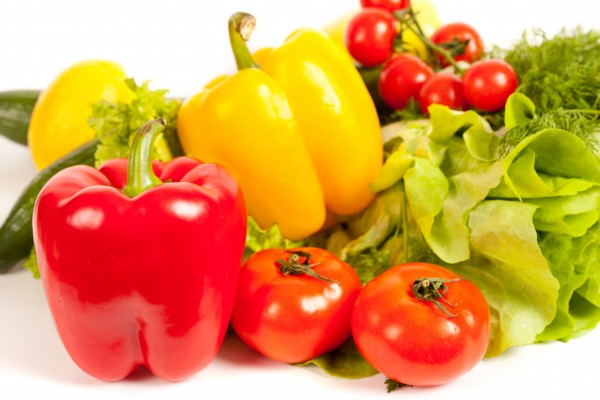When it comes to organic food, the cost is not always worth the benefits. Researchers have conducted studies of organic produce to figure out if it is healthier or contains more nutrients than normal produce. According to a study by the Annals of Internal Medicine, organic produce does not contain any more vitamins or minerals than normal produce. The same study did show that organic produce contains fewer pesticides, so it may still be worth buying. Fruits and vegetables had a total of 30 percent less pesticide contamination than conventional produce.
Organic Versus Conventional Foods
According to researchers, pork and chicken were 33 percent more likely to have antibiotic-resistant bacteria if the animals were not raised organically. Studies also show that children who eat primarily organic foods have lower levels of pesticides in their urine. Although this sounds like a benefit, research does not show that high levels of pesticides are actually linked to any IQ deficits or birth weight problems in children.

If pesticides are shown to harm human health, then the United States may be in trouble. In the United States, 59 percent of conventional produce contains detectable pesticide levels even after the produce has been washed. When Europe and the United States are averaged together, 38 percent of conventional produce and 7 percent of organic produce were found to contain pesticides. Organic produce technically should not include any pesticides, but some pesticides can drift from nearby farms through the wind or water.
Should You Eat Organic Food?
The potential harm of pesticides varies depending on your age, your genetics, the chemicals you have been exposed to and your ability to metabolize toxins. Pregnant women, young children and nursing mothers may be particularly at risk for the effects of pesticides. While the FDA ensures that all produce is below set pesticide levels, it does not calculate the long-term exposure risks. Basically, the FDA rules show that a non-organic food is safe, but these rules are not designed to figure out how safe the same food is if it is continuously consumed.
While health is a factor, the costs of eating organically must also be considered. If you can afford it, eating organic foods will help to lower your pesticide exposure and the resulting health risks. For individuals who can only afford to eat some organic foods, the following types of produce are the most important ones to buy organic. According to researchers, these vegetables and fruits are more likely to retain pesticides, so they are the most important ones to buy organic if you are on a budget.
Must-Have Organic Foods
– Bell Peppers
– Spinach
– Potatoes
– Cherries
– Pears
– Carrots
– Peaches
– Strawberries
– Baby Food
– Apples
– Grapes
– Milk
– Celery
– Peanut Butter
– Nectarines
– Lettuce
– Beef
– Pork
As a general rule, buy organic produce if you plan on eating the skin of the fruit or vegetable. Fruits that are peeled like an orange or a banana have a protective layer that keeps some of the pesticides out. In comparison, pesticides that are sprayed on an apply are absorbed into the apple peel, which is then eaten by you. If you cannot afford to buy everything organic, focus on buying fruits and vegetables that have consumable skins and peels.
